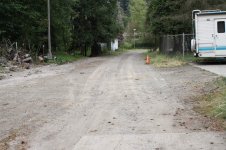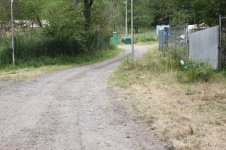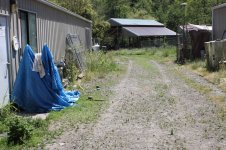boggen
Elite Member
- Joined
- Feb 22, 2011
- Messages
- 3,829
- Location
- Trivoli, IL
- Tractor
- SSTT (Sideways Snake Tain Tractor) and STB (sideways train box) tractor, dirt harvester
i agree with ya. last thread was an attempt to put a different view on things. everyone else has nailed things down this way or that away. and an attempt to help him connect the dots together.Boggen the way I read it from the OP was, the buyer,him, was in for 5K and the developer was to provide an "all weather road". I think the question will become 'what is an all weather road'. There is even a good deal of disagreement in this discussion as to what that means.
MarkV
all weather road to me is. a road i do not have to re-grade and maintain each time it rains. and will last through a some rains and some heavy down pours. were i will not get stuck. or require a 4x4 and risking a good chance of being stuck. other words maintenance should be down to every couple months. exception initial couple years. as ground settling occurs and needing to fill in spots and take some high spots out. and other exception is spring time (wet season for a given area) when snow melts and more of the ground is wetter for longer period of times. road should hold up. without visable washouts that will increasingly get bigger. and make it impossible to pass over.
rutting should be kept down to min. but some ruts i would say could pass as an all weather road. ((old dirt roads out in the country for example)) a 2 wheel drive car should be able to drive the road without any great chance of getting stuck with exception of getting out onto the shoulder / near the ditch and getting into the mud.
a bad corner or bad hill or low spots, or not wide enough areas, or spots were water collects. are always bad spots for getting stuck and a lot of rutting to occur. and road crews come fix areas once it all dry's out enough. but until it dries out. you should still be able to use a standard 2 wheel drive car and make it through the area.
a 4x4 vehicle for folks living out in the country on old dirt roads around here, is almost a requirement, due to things do happen, and maintenance is not done as needed. or is, but big storms and like. take things out. but over all use, 2 wheel vehicle is still use able.
"all weather road/driveway" it doesn't mean there has to be rock on the road, it could just be dirt, or it could be concrete or asphalt or other.
high maintenance doesn't mean. re grading the area every time it rains. or every couple rains. it means if ya don't keep up with maintenance, keep ditches mowed and keep ditches from washing out. keep culverts unplugged, add little bit of rock here and there for ruts that start happening over a longer period of time. keep crowns or slopes within the driveway correct so water run off is maintained and achieved as the road / driveway is used.
all weather road to me, doesn't mean your vehicle will not get dirty. and in fact it may get covered in complete mud and/or dust.
if road/driveway was designed to be partially dirt. then the dirt should hold up from any sort of major rutting.
""all weather road"" should not need any changes to it, through out the seasons to keep it drivable. example having a bunch more rock hauled in. due to all the previous rock sunk into the dirt and now major rutting occurs. exception over a couple years or more, more rock is hauled in to replenish the top coat of gravel.
==================
to me above would describe "all weather road/driveway" anything less than that. would be a farm lane, that is used during planting and harvesting to get back to a field. or a road way that is only used when things are dry.
and since dealing with water being major culprit of things, and culverts and ditches are used to fix these situations majorty of time. they are almost a requirement, i say almost, there is always those exceptions.




